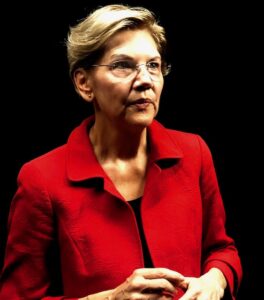
COLUMBIA, S.C. — Elizabeth Warren has big plans for HBCUs — $50 billion worth of plans, to be exact.
The 70-year-old senator from Massachusetts has proposed a two-cent wealth tax that will fund universal childcare, raise the wages of every child-care worker and pre-school teacher, pump about $800 billion into public schools, and make college tuition free. And yes, a portion of these funds is specifically set aside for HBCUs.
“As you know, more than a century ago, America invested a lot of money into public universities and then turned around and either formally said, ‘But African Americans can’t come,’ or in effect kept African Americans out,” Warren said Sunday in an exclusive interview after addressing an audience on criminal justice reform at Benedict College. “HBCUs were born of that time, basically charity, from black churches and a few entrepreneurs that were able to help build them.
“That means that HBCUs have always done this on so limited funds,” Warren added. “So, my view is it is time to level the playing field.”
Nine of the Democratic candidates, including Warren, attended the Second Step 2019 Presidential Justice Forum at Benedict College last weekend where they discussed where the Black community, and specifically HBCUs, fit in under their administration.
“There is not a single thing you [HBCU students] cannot do,” said former Vice President Joe Biden. “One thing I’m going to do, and I’m sure other candidates would as well, is make sure you have opportunity. We’ve go to provide you the opportunity because there is nothing you can’t do.”
Among the front-runners for the Democratic Party’s presidential nomination, Warren’s plans include helping all HBCUs become tuition-free and seeing that HBCUs have $50 billion dispersed between them to spend as they see fit.
“Rather that’s for more buildings or more faculty, rather that’s for more people to get out and recruit — it’s however it is the HBCUs want to do it. Because for me it’s about investing in America’s future and that’s where tomorrow’s leaders are.”
Warren, a former Harvard bankruptcy law instructor and former economic adviser to President Barack Obama, believes that the current justice system criminalizes being poor and that there is a trickle-down economic effect that punishes the families of incarcerated people and perpetuates a painful cycle of recidivism.
Black people are four times more likely to be arrested for marijuana related offenses but have the same usage rates as white people. Warren also recognizes the crack-cocaine epidemic in the 1980s and 90s as a major contributor to the disproportionately harmful impacts of the criminal justice system on minorities.
Warren said that for the exact same crimes, African Americans are more likely to be arrested, detained, taken to trial, wrongfully convicted and to serve longer sentences.
“Race lies at the heart of what’s broken in this system,” she said.
Warren compared her plans to fix the criminal justice system to the steps taken to lower the automobile death rate.
“Five people were dying for every million miles traveled and it was being talked about as ‘carnage on our highways.’ That’s what the headlines all said,” she said. “It was talking about babies dying and seniors dying, and families being wiped out. So, as a country we committed to reducing death by auto,” she said, referencing the transition to safety glass in cars, seat belts, airbags and automatic breaking systems.
The former registered Republican believes she can generate the bipartisan support necessary to pass such legislation. She has a bill pending in the Senate, co-sponsored by a Colorado Republican Cory Gardner, which will amend federal drug laws. The STATES Act basically says that if you are not breaking your state laws regarding marijuana, then what you are doing is legal under federal law.
“But I want you to think about politics a little differently. That is, if we’ve got somebody in the White House who is willing to fight and we have truly built a grassroots movement around the country, not only to get us to election day but nobody goes home after the election and [they] stay engaged. Come January 2021, we pick up each other’s fights and get out there and fight for it. That’s how we’re gonna make it happen,” she said.
Warren has made it clear she has plans for the Black community under her administration. As far as her plans with FAMU graduate Andrew Gillum, a former mayor or Tallahassee and the Democratic Party’s candidate for governor of Florida in 2018, Warren declined to comment on her talks with him, which was originally speculated to be about being a potential running mate earlier this month.
To learn more about Senator Warren and keep up with her campaign, visit elizabethwarren.com.